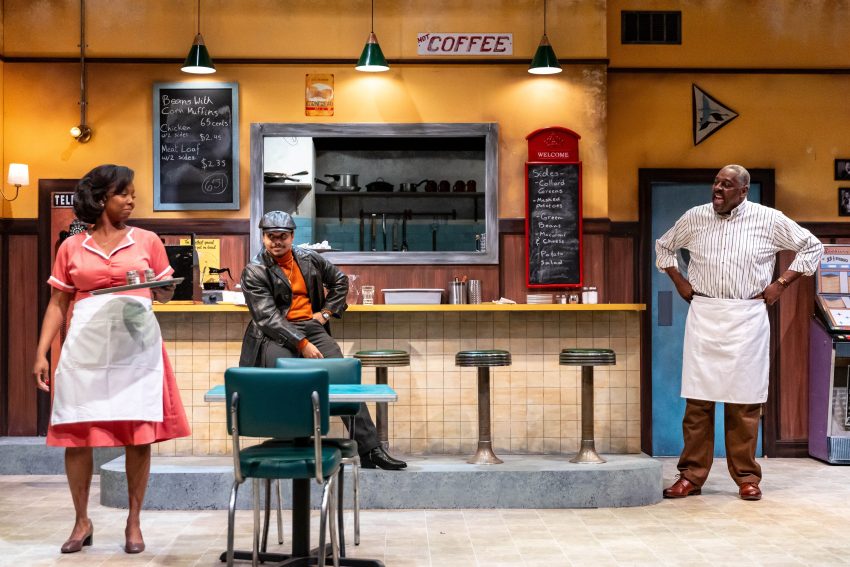
“Two Trains Running”: Reclaiming Land & Love in Civil Rights Era—at ACT
August Wilson Exposes Con Game that Keeps U.S. Unequal
by Kristian Stovall & Barry David Horwitz
August Wilson’s “Two Trains Running,” set in Pittsburgh’s Hill District in 1969, lands with a quiet intensity. Wilson’s Civil Rights Era drama recalls the original Black communities who owned land, loved freely, and grew their own food. The land gave them freedom—until it was replaced with bills and debt and called “progress.”
Tanya Orellana’s set—a beautiful 60s diner—grounds us in quiet resistance. Meager wages repackage slavery. African American characters are lied to, but they keep clocking in. Wilson exposes the system as a rigged game.
Conspiring to gentrify the Hill District, the city tries to bully Memphis (powerful Michael A. Shepperd) into selling his diner, but he boldly refuses their insultingly low offer. Memphis runs a “clean business” and dismisses protests as ineffective, asserting, “People just go back to business as usual.” The real tragedy is that his deep obedience to the “game” keeps him from leading his people. Shepperd triumphs with the moving story of Memphis’ land and his mule. His drunken scene reveals not just pain—but his training to just survive.
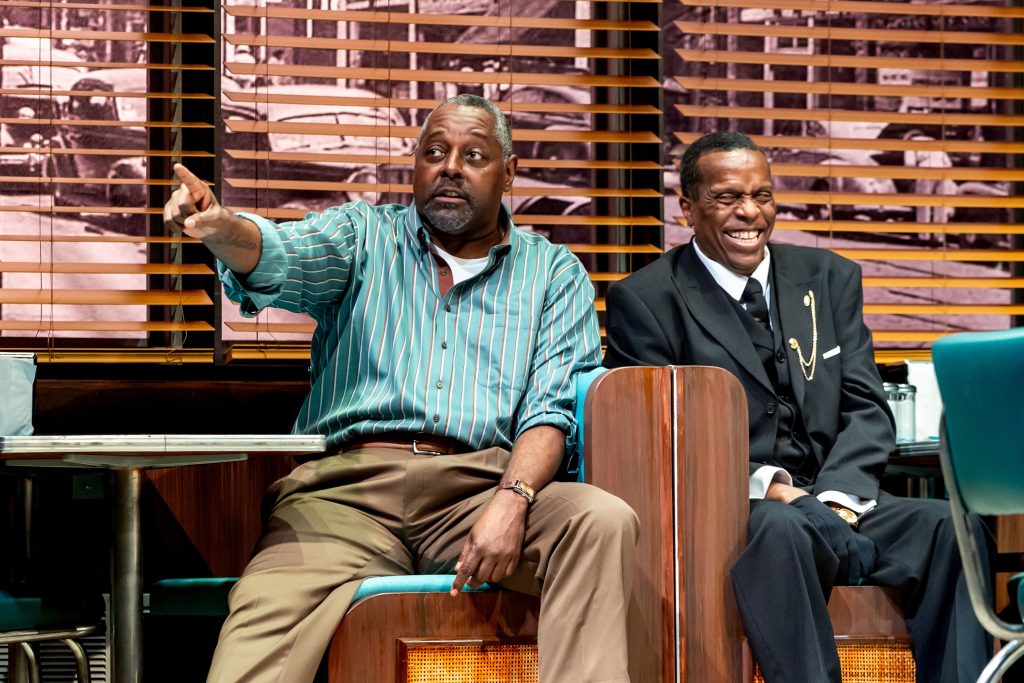
The diner welcomes all sorts, even local undertaker West (intriguing Robert Cornelius), sharp in black gloves and colder than a casket. Like a setting sun, he profits from white gentrification. But he’s really burying the free, self-sustaining community, The Hill, where death once brought people together—without costing a dime.
Memphis’ friend Holloway (thoughtful Michael J. Asberry) carries quiet wisdom. Holloway has the insight to lead, but he’s been taught to “mind his business,” a survival instinct shaped by fear. If he is a hollow man, it’s because colonization taught him to shrink when his people needed him to rise. Holloway and Risa (stoic DeAnna Supplee) steady the play with realism and restraint.
As Risa, the only woman, Supplee shows what true liberation looks like. She generously feeds the disturbed Hambone (touching Chuckie Benson), putting passion above profit. Although the men treat her rudely, she rises above them like a queen.
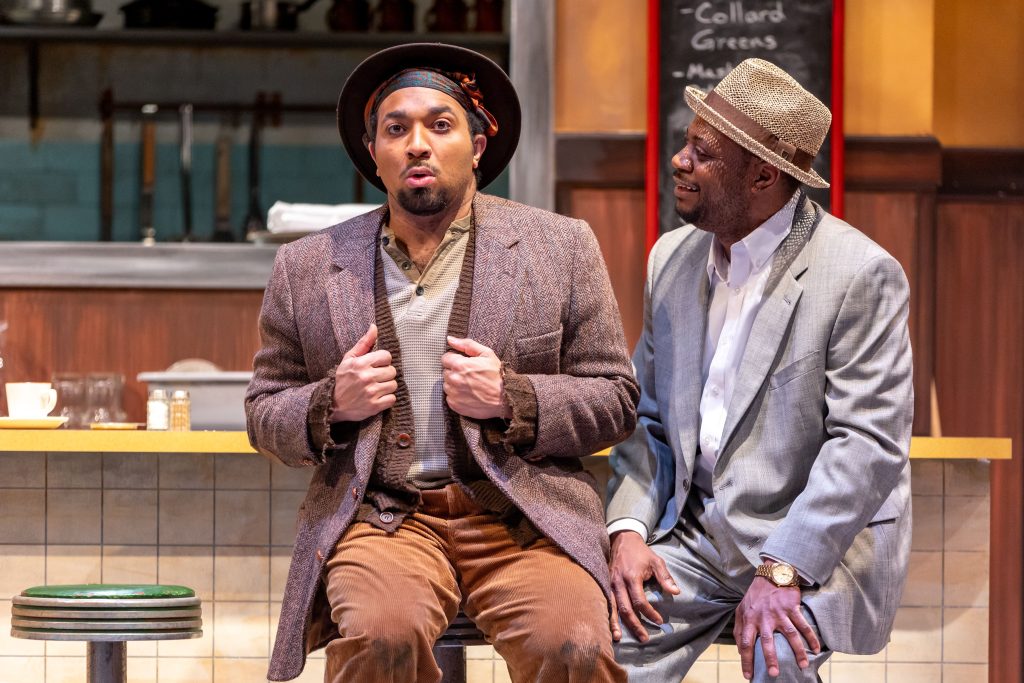
Pitiable “Hambone” endlessly demands: “I want my ham!” His rallying cry becomes the strongest voice for justice in Wilson’s masterful play: When the world denies you fairness, you demand it anyway! That’s not madness—that’s clarity.
Sterling (intriguing James Ricardo Milord), the aimless petty thief, fights an uphill battle in a world stacked against him. He refuses to work for pennies or to slave in the factory. He woos Risa, charmingly and awkwardly—but they are not free. You need a job to love. Milord brings Sterling to life with sharp, self-conscious comedy.
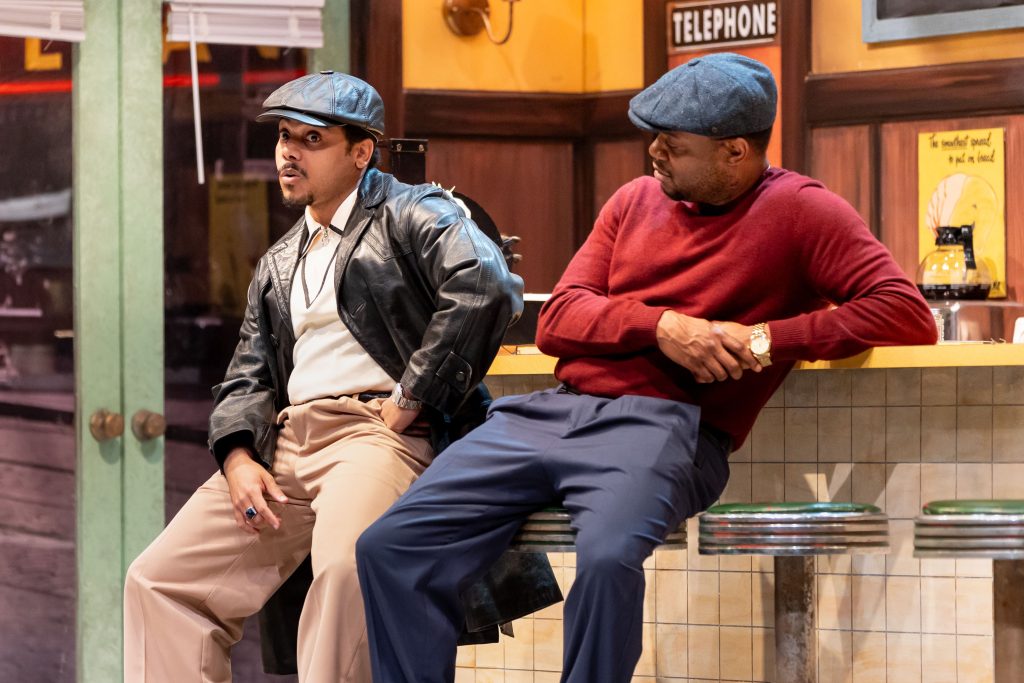
Nonchalant Wolf (delightful J’Laney Allen), a slick gambler, tries to run numbers out of Memphis’ diner. He, too, runs into white control. But frustrated customer Sterling delivers the verdict: “If I don’t play… that means there can’t be no game. Game canceled.”
He’s talking about the numbers game—but also the real one. The Man wins because We keep playing.
The Acting Company of New York delivers a solid, seductive production showing the 60s in a new light. Take a glimpse into a people’s soul—and see what happens when we are forced to play a losing game.
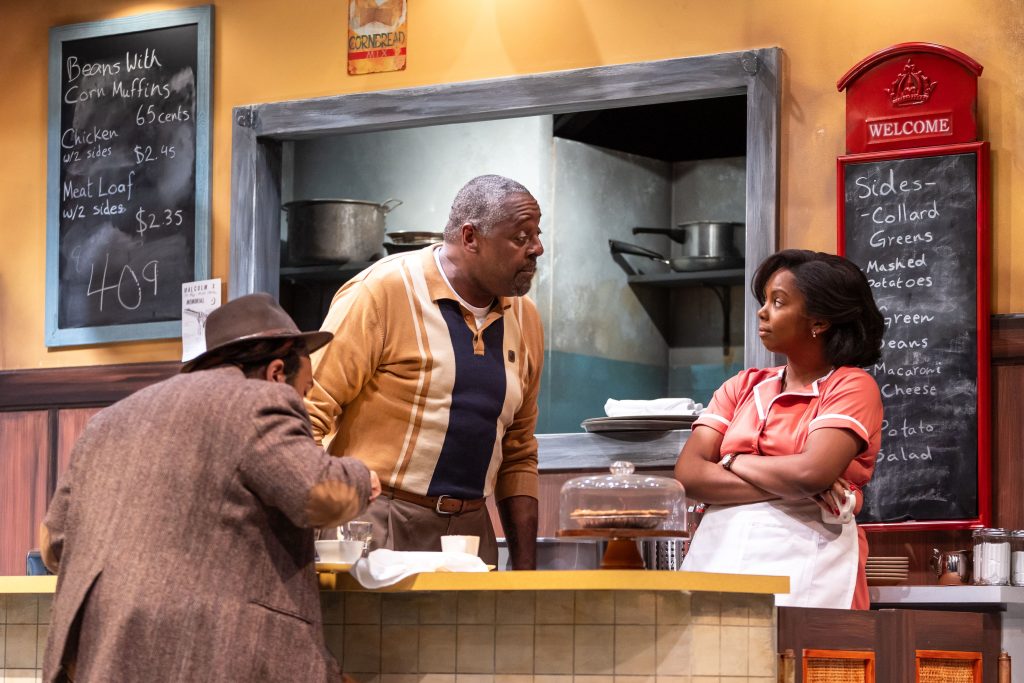
“Two Trains Running” by August Wilson, directed by Lili-Anne Brown, scenic design by Tanya Orellana, costumes by Samantha C. Jones, lighting by Jared Gooding, by The Acting Company, New York, at ACT, San Francisco. Info: act-sf.org – to May 4, 2025.
Cast: J’Laney Allen, Michael J. Asberry, Chuckie Benson, Robert Cornelius, James Milord, Michael A. Shepperd, and DeAnna Supplee.
Banner photo: DeAnna Supplee (Risa), J’Laney Allen (Wolf), Michael A. Shepperd (Memphis). Photos: Lore Photography Ventura